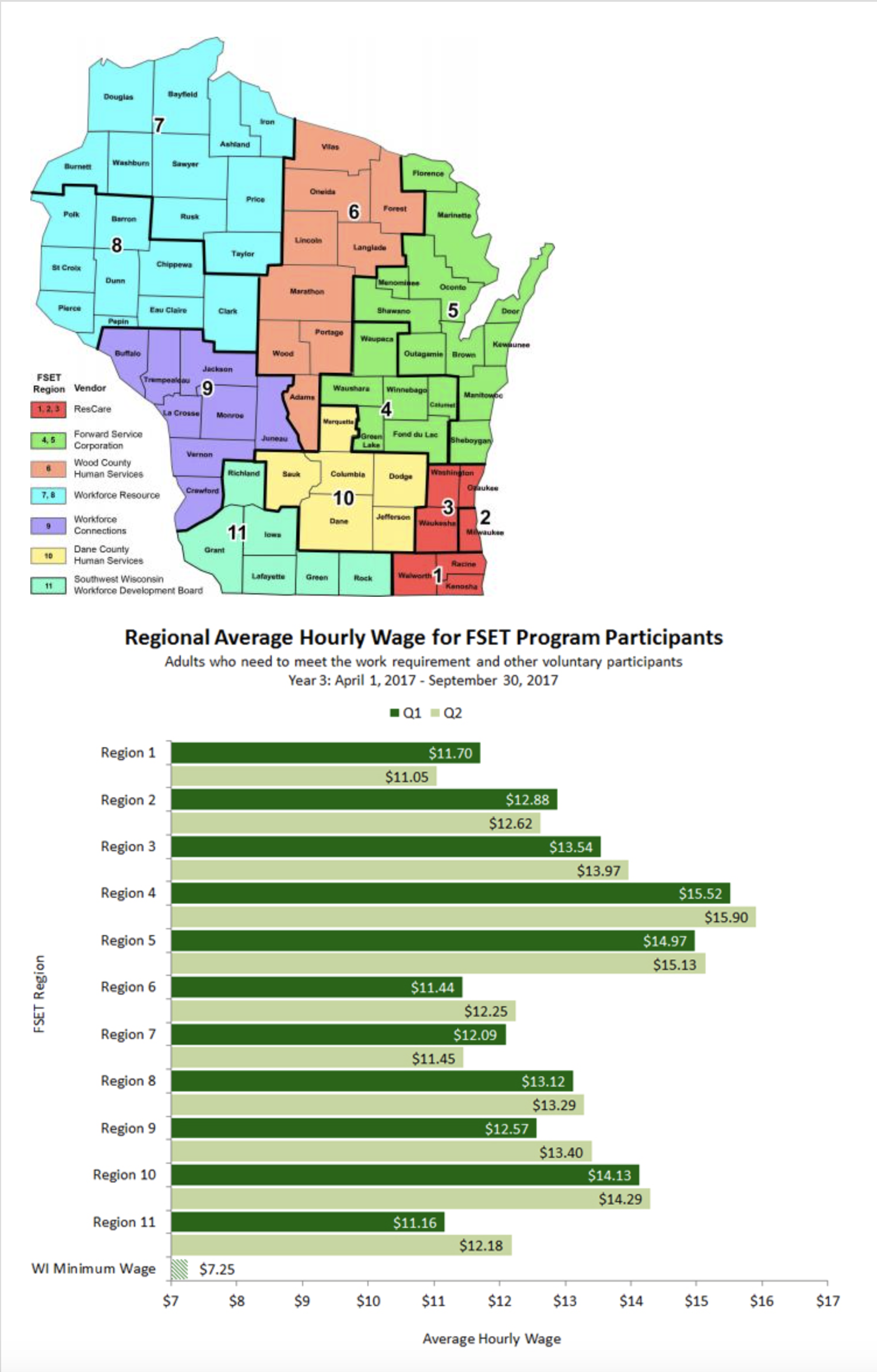
MacIver News Service | December 1, 2017
By Bill Osmulski
MADISON, Wis. – After two and a half years, Wisconsin’s FoodShare Employment and Training Program (FSET) continues to prove its effectiveness in shepherding adults off public benefits and into productive careers.
In September, FSET participants worked an average of 34.7 hours a week with an average wage of $12.80.
FSET was created in the 2015-17 state budget and requires able-bodied adults who don’t have children at home to participate in a jobs training program, work 80 hours a month, or lose their FoodShare benefits after three months. It went into effect in April of 2015.
As of Sept. 2017, 23,093 FSET participants have found gainful employment, according to a November report from the Wisconsin Department of Health Services. This year alone, 10,969 people have participated.
 In September, FSET participants worked an average of 34.7 hours a week with an average wage of $12.80. Wages and hours peaked in July with workers averaging 35.2 hours a week and an average wage of $13.11. That’s still a good bump from Sept. 2016, when the average wage was $11.90 and the average hours worked per week was 32.9.
In September, FSET participants worked an average of 34.7 hours a week with an average wage of $12.80. Wages and hours peaked in July with workers averaging 35.2 hours a week and an average wage of $13.11. That’s still a good bump from Sept. 2016, when the average wage was $11.90 and the average hours worked per week was 32.9.
FSET workers did the best in Waupaca, Waushara, Green Lake, Winnebago, Fond du Lac, and Calumet Counties. There the average wage was $15.90 an hour – more than double the state’s minimum wage of $7.25. They were also averaging 38.4 hours a week.
The number of participants declined over the years, as there are fewer able-bodied childless adults receiving FoodShare benefits. In the first quarter of the program in 2015, 22,501 people were referred to FSET who needed to meet the work requirements. Last quarter, there were only 8,098.
Altogether, 5,420 people participated in FSET last quarter. Of the 8,098 who were required to participate or find work, only 1,616 enrolled. That comes out to less than 20 percent. Meanwhile, 4,820 people who didn’t participate used up their three months of FoodShare benefits and were dropped from the rolls.
The other 3,804 people who enrolled in FSET last quarter are also FoodShare beneficiaries, but don’t have work requirements. FSET is open and free to anyone who receives FoodShare benefits.
The 2017-19 budget expands the program. Now able-bodied adults with children at home who are age 6 or older have work requirements in order to continue receiving FoodShare benefits.